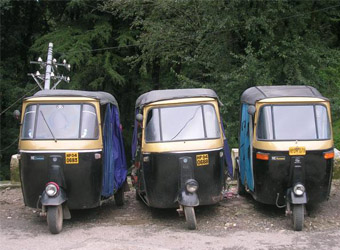The state judicial body explained that tuk-tuks are widely used in committing crimes, due to their small size, and are considered a serious threat to security in several areas nationwide, particularly in slums.
The SCA recommendation does not refer to already existing rickshaws in Egypt.
“We approach the case as the largest importer of three-wheelers in Egypt, but we aren’t part of the dispute,” Raghda El-Azab, the head of GB Auto’s public relations division, told Ahram Online.
GB Auto is the sole assembler of tuk-tuks in Egypt.
“The management is a strong believer in the importance of three-wheelers in Egypt, particularly in slum areas where they are the most important mode of transport,” El-Azab added.
According to El-Azab, it is no solution to ban tuk-tuks as they contribute in lessening Egypt’s unemployment rate. Crime rates would be higher if the jobless rate increased.
Despite tuk-tuks remaining unlicenced, in 2012 the government decided to count tuk-tuks as taxis and accordingly that they should be taxed in the same way, which requires GB Auto to pay 15 percent sales tax each time it builds one of the mini-sized vehicles.
“Legally, state authorities should deal with three-wheeler vehicles as motorbikes, not cars,” El-Azab said.
Source: Ahram Online


